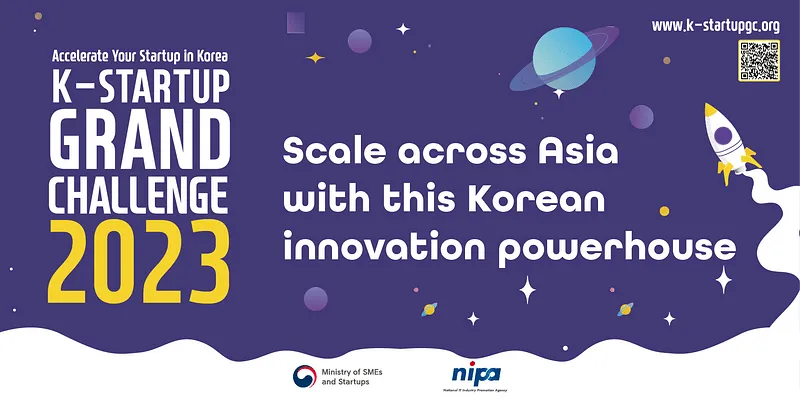Why South Korea, the world’s most connected country, makes a great place to scale your startup

There are many compelling features that make South Korea an ideal place to scale a tech startup. For one, it is the world’s most connected country with 100% of LTE coverage. Korea has the fastest average internet connection and the highest number of broadband services per capita in the world.
South Korea has also been an early mover for 5G, with three mobile operators initially turning on service in 2019 after an earlier auction of key mid-band, as well as millimeter wave spectrum. A recent report by RootMetrics put out new analysis that determined South Korea’s 5G networks are setting a strong example for the rest of the world.
Korea also provides great opportunities to perform consumer testing. With almost half of the country’s population in Seoul, Koreans are known to be early adopters of new technologies. They are eager to be the first to buy and use newly released technology.
Within this context, the Korean government is working to transform the country’s economy, and a key way it’s doing this is by supporting talented entrepreneurs and promising startups.
Strong ties with China, Japan, Hong Kong, and Taiwan
Located in East Asia, South Korea has strong cultural and economic ties with China, Japan, Hong Kong, Taiwan, and more. Startups can leverage South Korea’s favourable location to scale their business across the Asian market.
Korea’s startup ecosystem is active and well designed, attracting the attention of investors, accelerators, and incubators from all around the world. Google, for example, launched their first-ever Asian Google Campus in Seoul. Facebook is also on the scene and is further empowering Korea’s IT developers through its new innovation lab in Pangyo.
And that’s not all. Several projects between conglomerates and startups are currently active and facilitated by the government. For instance, conglomerates such as Samsung, Hyundai, LG, SK, POSCO and Lotte run several accelerator and venture programmes.
Strong government support
The Korean government is constantly improving the infrastructure that supports the startup ecosystem. At a recent press conference, Korean President Moon Jae asserted that they would actively assist startups to scale across Asia via Korea.
South Korea encourages the growth of the startup scene by endorsing tax breaks and incentives for angel investors and venture capitalists, tax benefits for mergers and acquisitions in the technology and R&D sectors, and improvements in visa regulations for startup and entrepreneurs from abroad.
South Korea is also one of the safest countries in the world, with an extremely low crime rate. Furthermore, it has established a patent law system so that startups can bring their creative ideas under government protection.
Fantastic market potential
By nominal GDP, it has the 4th largest economy in Asia and the 12th largest in the world. Despite the tiny population and the small domestic demand market size, the Korean domestic market has a great purchasing power, as acknowledged by many global firms. Such an environment could provide a footstone for various global startups.
K-Startup Grand Challenge: the world’s largest global accelerator programme
All of these compelling reasons are crowned by its annual startup property, the K-Startup Grand Challenge, South Korea’s largest outreach programme for the startup ecosystem.
Apply for the K-Startup Grand Challenge 2023
As the world’s largest three-month global accelerator programme, the K-Startup Grand Challenge can provide founders and their startups with the support and opportunities for investment that they need to launch their business in Asia. The benefits include:
1. Access to state-of-the-art Korean R&D labs
2. A prize pool of $270,000 for the top five startups
3. Grants and living expenses during the programme
4. Working out of a brand-new, centrally-located startup campus
5. Expert mentorship
6. Corporate partnerships
7. Potential for additional investment
8. An assigned Korean intern, and much much more!
Applications close on May 18, 2023. Hurry!
Promising startups with a clear objective to expand into Asia by using the Korean market as a stepping stone may register and apply for the challenge.

Atul Tiwari is a seasoned journalist at Mumbai Times, specializing in city news, culture, and human-interest stories. With a knack for uncovering compelling narratives, Atul brings Mumbai’s vibrant spirit to life through his writing.





